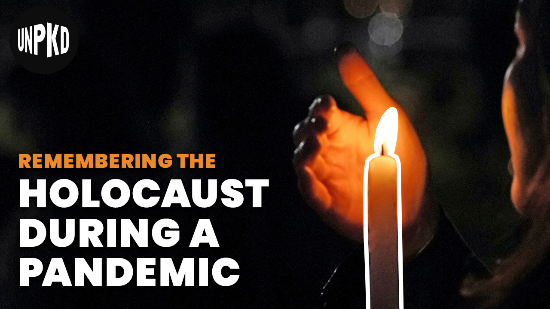UNPACKED – What COVID-19 Means for Holocaust Remembrance
This year, Holocaust Remembrance Day, which begins on the evening of April 20, will be like no other. Although it’s Israel’s national day of commemoration to remember the six million Jews who perished in the Holocaust, COVID-19 means public ceremonies and commemorations have been canceled and, unless they’re on Zoom, we won’t have the privilege of hearing survivors tell their stories. In some ways, it’s a rehearsal for the coming years. The number of survivors is growing smaller and smaller and soon there won’t be any to give their testimonies first hand. Which raises an important question.
Once we lose the ability to hear these personal accounts of the events, will the Shoah (Holocaust) become just another part of history? In this week’s explainer, we examine the power of memory, ask what untold stories add to the Holocaust narrative – and to the collective Jewish identity – and why COVID-19 could be a wake-up call for how we approach the memory of the Shoah.








